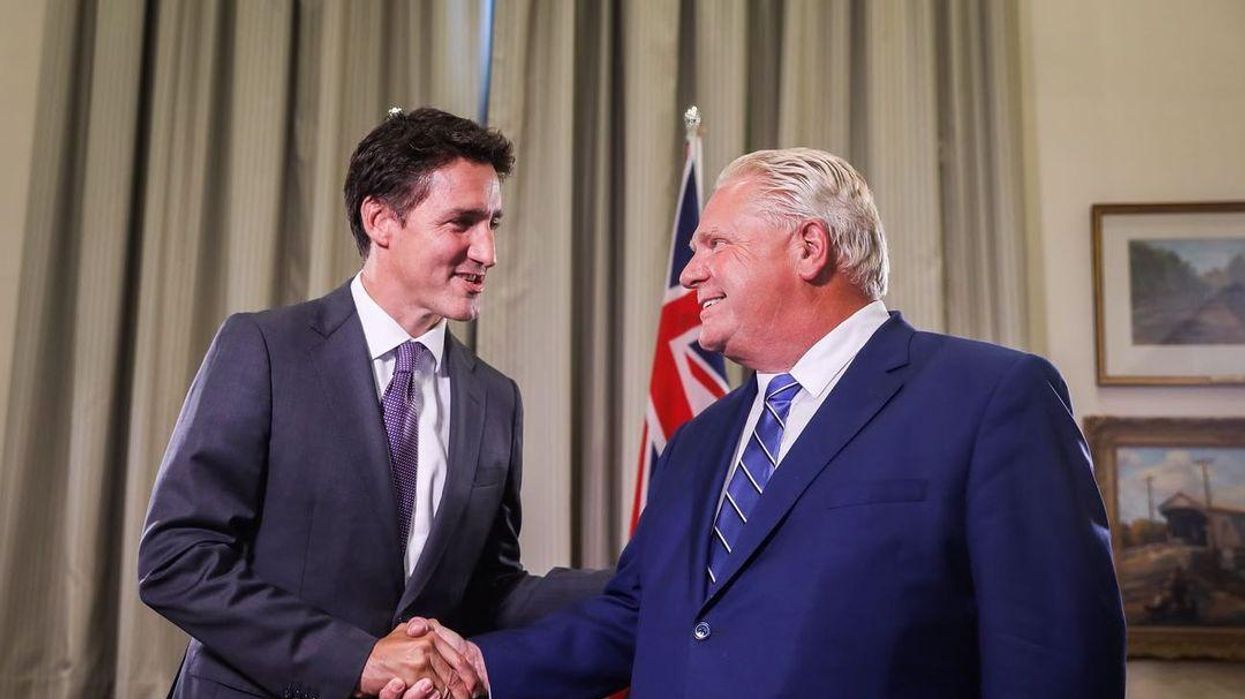Justin Trudeau Slammed Doug Ford & Called His Suspending Of Workers' Rights 'Wrong'
He added the notwithstanding clause should only be used in "exceptional circumstances."

Justin Trudeau & Doug Ford shaking hands.
Canadian Prime Minister Justin Trudeau just called out Ontario Premier Doug Ford* on his government's recent invocation of the notwithstanding clause.
In a statement to reporters ahead of question period at parliament recorded by CPAC, Justin Trudeau said invoking the clause to suspend workers' rights is "wrong."
"I know that collective bargaining negotiations are sometimes difficult, it has to be done in a respectful and thoughtful way at the bargaining table," he continued.
\u201c\u201cUsing the notwithstanding clause to suspend workers\u2019 rights is wrong,\u201d PM Trudeau responds when asked by reporters about the Ontario government\u2019s use of the constitutional provision to prevent legal challenge of its back-to-work bill for education workers.\n\n#cdnpoli | #onpoli\u201d— CPAC (@CPAC) 1667310276
"The suspension of people's rights is something you should do in only the most exceptional circumstances."
These comments come in response to Ontario's provincial government's current tabling of a piece of legislation that would force members of the CUPE, a union that counts educational support staff, admin workers, custodians and other workers among its members, into a four-year contract.
And, along with tabling it, the provincial government is invoking the clause as a preemptive defence of any potential legal challenges posed by the union.
If this were to pass, this would squash the looming strike by CUPE and make it illegal to do so going forward.
However, CUPE leadership has said that they will be walking out of the job on November 4 no matter what the province does.
What is the notwithstanding clause?
The notwithstanding clause has been built into Canada's Charter of Rights and Freedoms as section 33 since day one.
In essence, it provides a province with the option to suspend a right or freedom guaranteed by the Charter in exceptional circumstances.
Section 33 has been declared a few times in the past, such as by Alberta, Quebec, Ontario, Saskatchewan and Yukon. It can be struck down in court if the situation is deemed unworthy of the invocation — something that is usually figured out in court.
*This story has been updated.
This article's cover image was used for illustrative purposes only.